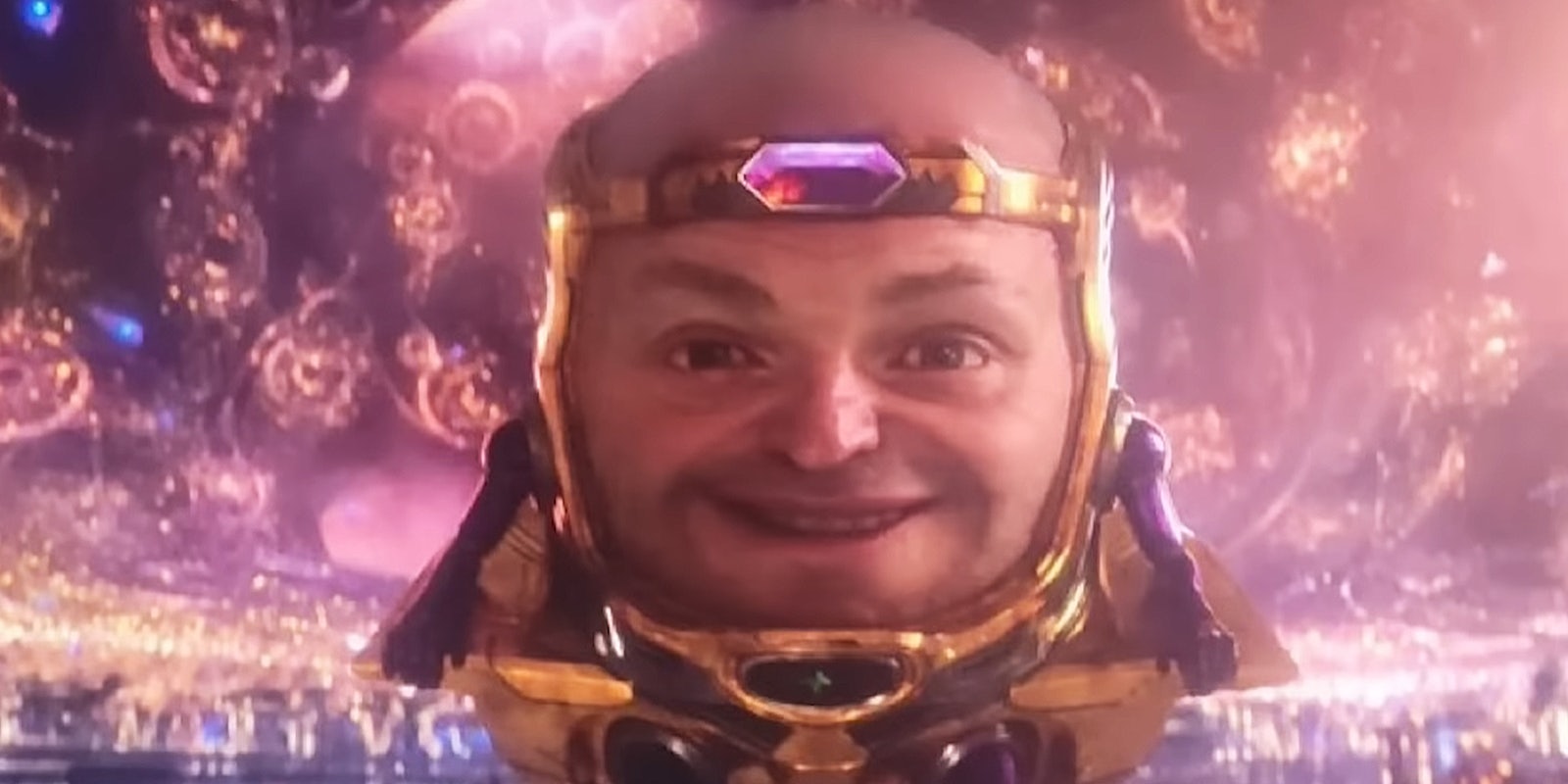Among professional critics, Ant-Man and the Wasp: Quantumania is the worst-reviewed MCU movie to date.
More troublingly for Marvel’s reputation, mainstream audiences gave it a “B” grade via the market research company CinemaScore, where popular blockbusters generally rate between A- and A+. Meanwhile, the social media buzz is unusually negative for the MCU, whose fanbase is known for being loyal and forgiving.
In particular, people seem decidedly unimpressed by the film’s visual effects.
Marvel’s CGI has attracted more and more criticism in recent years. She-Hulk is the most notorious example, but there’s also a growing pushback against The Volume, a new technology that replaces greenscreen with a wraparound LED backdrop. This can sometimes be a useful tool, but it’s been criticized for creating flat, dull imagery when compared to location filming.
In Quantumania, two elements inspired particular backlash: The design of MODOK (a CG/live-action composite character who is basically a giant floating head), and the extensive use of CGI for the film’s main locations in the Quantum Realm. A lot of scenes have an air of falseness, with characters placed in the middle of an intangible, poorly-lit CG environment.
The problem here isn’t the mere presence of CGI, it’s that the MCU’s CGI is visibly bad. Viewers have noticed this more in recent projects, overlapping with reports about VFX artists being overworked by Marvel filmmakers, who allegedly demand unrealistic deadlines and nitpick every detail.
With Quantumania, it’s easy to make comparisons between the artificiality of the Quantum Realm vs. the visually impactful action of the first film in 2015. Speaking to Vulture, several Marvel VFX contractors explained why this movie looks so underwhelming. One issue was scheduling. Quantumania and Black Panther: Wakanda Forever were in post-production at the same time, and Marvel allegedly prioritized Black Panther for “critical resources.”
One VFX artist also shared a damning description of the process for inserting actors into a computer-animated environment:
“We had a rough environment that we were sticking a few main characters in. At that time, we weren’t told where the characters should be in that environment. We were just going with what felt right.
Then there were times when we were creating an actor’s entire action: Ant-Man moving across something. And you just think, Why didn’t they film it the right way or how they wanted in the first place? Why are we having to redo and re-create? Why do we have to Frankenstein together an actor’s performance? A quick shot that maybe takes two seconds would have to be redone 20 times to get the look that they want.”
Quantumania‘s visual effects earned comparisons to Spy Kids (2008) long before the film came out, and MODOK’s dorky appearance is an easy target for TikTok dunks. But beyond that, these behind-the-scenes VFX stories highlight Marvel’s lack of respect for both its own artistic infrastructure and its audience.
So far, the MCU seems to be critic-proof. The franchise benefits from unprecedented brand loyalty, assisted by Disney’s near-monopolistic access to cinema chains. Even when these films are poorly written and ugly to watch, fans still buy tickets—as proven by Quantumania‘s $104 million opening weekend.
At some point though, something’s got to give. Much of the MCU’s popularity lies in its reliability. People enjoy the formula, trusting that every film will be enjoyable in a similar way. But people aren’t really enjoying films like Quantumania. If the MCU gains a reputation for making the same annoying mistakes in every movie, then that formula will eventually lose its appeal.



